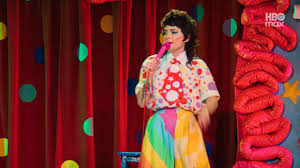The Listener 2024 Movie Review
Because many people spent significantly more time alone at home during the corona pandemic, the demand for telephone counseling services also increased massively. The ability to simply talk to someone and escape loneliness, at least temporarily, was in greater demand than ever before. This is also the starting point of “ The Listener ,” the first directorial effort from actor Steve Buscemi (“Reservoir Dogs”) in 15 years. The toll that is taken on everyone who makes themselves available to listen also plays an important role when the title character, who calls herself Beth ( Tessa Thompson ), says right at the beginning that she will soon be giving up the job, at least temporarily becomes.
The fact that the corona pandemic only resonates in the background is one of the strengths of “The Listener”. But this is not the only point where Buscemi relies on a very calm narrative. In his chamber play, in which Marvel Valkyrie Tessa Thompson is the only person to be seen in front of the camera, he occasionally suggests that things could get more dramatic, but without following through with it. Combined with a soulful production, “The Listener” establishes an atmosphere that makes the audience do like Beth and just listen. The big problem with this: As soon as you do this, you quickly realize how flat and artificial most of the conversations are written…
We listen to these conversations all night long. In contrast to other telephone films such as “ The Guilty ” about an employee in an emergency call center, “The Listener” is not THE extraordinary night in which everything is different than usual and Beth is pushed to her limits. In fact, Beth probably has these same conversations on every other shift – for example, with a homeless young woman who is suffering at the hands of her aggressive partner, or an ex-soldier who lost a foot in the war and killed an innocent person. Only the telephone conversation with a professor (vocally strong: Rebecca Hall ), who suddenly turns the tables and gets the listener talking, is a bit out of line…
Only occasionally does the camera look out the window, which, combined with a swell of music and some of the usual night noises, briefly gives the impression that there might be danger lurking out there. However, it is a rather helpless attempt to create tension – after all, you sense right from the start that this is (fortunately) simply not one of those films where in the finale one of the callers suddenly appears at the door with a knife. Otherwise, “The Listener” is very well staged. One-person-on-the-phone films often limit themselves due to the location – there is only the car (“ Locke ”) or the emergency call center (“ The Guilty ”) and that can quickly lead to repetitive images.
In “The Listener” this problem is cleverly avoided by having Beth work from home and roam around her apartment first in her nightgown and then in her jogging suit, sometimes going out the door or casually making small drawings that are related to the current conversation. Buscemi stages his leading actress strongly in space. The camera from Anka Malatynska (“Pretty Little Liars: Original Sin”) gets very close to her, but then immediately locates her in the room from a distance. Our eyes are casually drawn to small things: the cigarettes that Beth lets disappear in the drawer, or the stress ball that she is violently handling.
The production maintains interest, but thanks to the very calm camerawork it is also so reserved that it never draws attention to itself. Like Tessa Thompson as Beth, we should also become listeners and be particularly interested in the stories presented by a well-known cast (including Logan Marshall-Green , Margaret Cho and even Steve Buscemi himself in a mini cameo). The audience is supposed to feel for themselves the helplessness that Thompson conveys through his facial expressions in some situations because of the caller’s overwhelming problems…
… but that’s exactly what doesn’t work. In the end, the stories rarely manage to really touch you because they simply don’t feel authentic enough. The fact that the selection of problems – from the woman-hating incel to racism in the police to the American healthcare system – was chosen based on a daily set of topics is not even the problem. Rather, it’s the smooth dialogue in the script by the Italian Alessandro Camon (“Shootout”), who was nominated for an Oscar for his work on the script for ” The Messenger “: the characters express themselves so clearly and purposefully, that it almost always sounds like it is written rather than spoken.
Regardless of whether Beth is talking to a teenager who has been living on the streets for years, an unemployed ex-con or a professor: almost every character gets to the point so quickly and well that after only a short conversation you can guess what is going to be discussed. When Beth has to poke around a little, it seems to be forced and is quickly resolved anyway. This means that interest in almost every conversation wanes as it progresses because it is clear where things are going anyway. All too often there is hope that the next conversation will begin soon.
With its calm production and the great Tessa Thompson, “The Listener” is actually a film that invites you to listen – but then far too rarely delivers anything like authentic moments in the stories presented.




